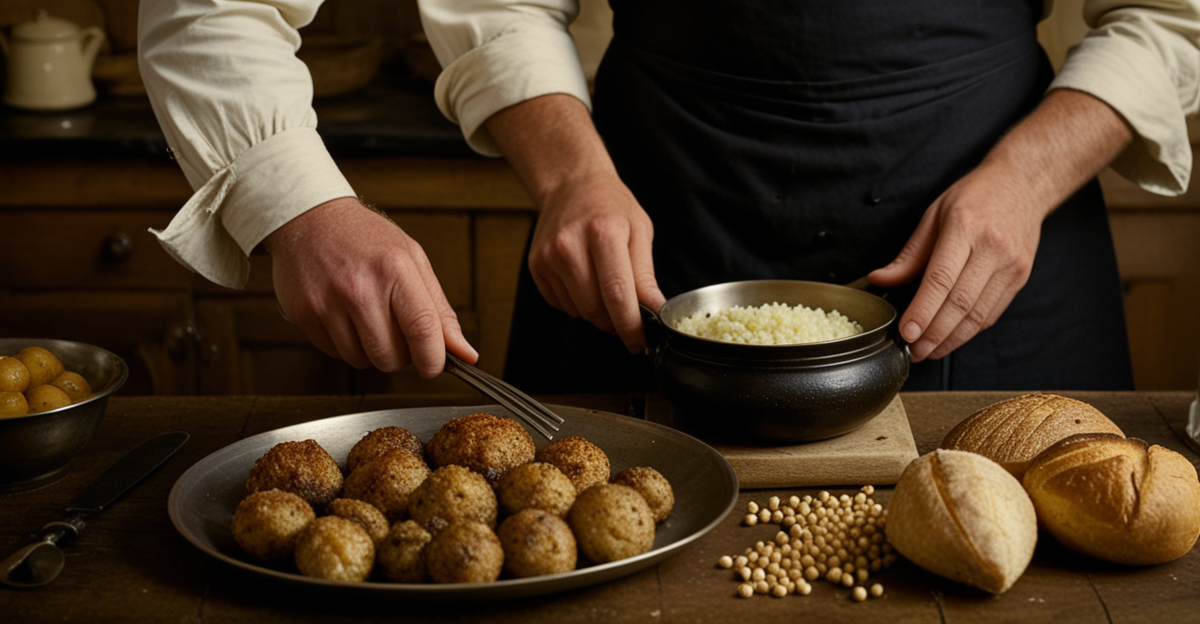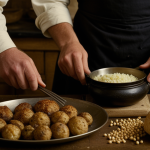Foundational Historical Eras and Their Impact on British Cooking
Exploring the roots that shaped British culinary traditions
The Roman influence on British cuisine marks a pivotal starting point in the nation’s food history. Romans introduced various new ingredients like cabbages and carrots, alongside advanced cultivation techniques and culinary methods such as baking and boiling. Their legacy includes robust food preparation styles that laid groundwork for future eras.
Additional reading : What are the must-try regional UK foods?
Moving forward, the Medieval flavors and the Norman conquest food legacy significantly expanded British palates. The Normans brought an enthusiasm for spice use, incorporating exotic seasonings like cinnamon and cloves, which transformed the British banquet culture. This era saw the integration of imported foods, including dried fruits and sugar substitutes, enhancing richness in dishes.
Examples of this enduring legacy include hearty meat pies and spiced pottages, which echo centuries-old recipes. Food customs such as grand feasts with intricate courses and the use of decorative presentation trace back to these periods. Understanding these foundational eras illuminates how ancient practices still inform the appeal and complexity of British cooking today.
Also read : How Can British Cuisine Evolve While Preserving Tradition?
The Role of Overseas Trade and Empire Expansion
Tracing how global connections enriched British cuisine
The significance of spices in British food cannot be overstated. From the 16th century onward, expanding trade networks introduced exotic spices such as pepper, cinnamon, and nutmeg, which transformed traditional British recipes. These spices enhanced flavor complexity, moving dishes beyond the earlier Norman conquest food legacy and Medieval flavors.
Alongside spices, sugar and tea history played a monumental role. Sugar, initially a rare luxury, became a staple sweetener incorporated widely in desserts and preserves. Tea’s arrival in Britain sparked social rituals and influenced culinary habits, underscoring its cultural importance tied to colonial trade. The demand for such goods was fueled by overseas markets under the British Empire.
Moreover, colonial trade and recipes introduced new ingredients such as rice, citrus fruits, and tropical produce into British kitchens. This influx led to the evolution of staple dishes that blended native and imported elements, promoting culinary diversity. For instance, curries adapted to British tastes exemplify this melding. The British Empire’s vast reach thus directly shaped the richness and variety of British cuisine through sustained overseas exchange.
Foundational Historical Eras and Their Impact on British Cooking
Bridging ancient legacies with enduring tastes
The Roman influence on British cuisine introduced foundational elements that permanently altered local foodways. Romans brought diverse vegetables like cabbages and carrots, alongside sophisticated cultivation practices including crop rotation and garden planning. Their culinary techniques such as baking bread in clay ovens and boiling allowed for more varied textures and preparations, setting the stage for subsequent culinary evolution.
Following Roman times, the Medieval flavors embraced a broader spice palette and complex sauces. The Norman conquest food legacy notably expanded taste horizons by introducing exotic spices like cinnamon and cloves. This legacy also advanced banquet culture, emphasizing elaborate multi-course feasts and ornate food presentation. Imported dried fruits and early sugar substitutes enriched both sweet and savory dishes.
Classic dishes exemplify these combined influences: hearty meat pies with spiced fillings and thick pottages trace their roots here. Food customs such as the grand banquet and the decorative use of spices continue to echo through British cooking traditions. These foundational historical eras collectively contributed the building blocks of British cuisine’s complexity and character.
Foundational Historical Eras and Their Impact on British Cooking
Bridging ancient legacies with enduring tastes
The Roman influence on British cuisine introduced crucial agricultural practices and culinary techniques that reshaped local food habits. Romans brought diverse vegetables like cabbages and carrots, as well as methods such as baking bread in clay ovens and boiling foods to enhance texture. Their emphasis on garden planning and crop rotation improved cultivation efficiency, fostering a more stable food supply.
Building on this, the Norman conquest food legacy greatly expanded the British palate, particularly through the introduction of potent spices like cinnamon and cloves. These exotic seasonings elevated the flavor profiles of Medieval dishes and nurtured a developing banquet culture. The Normans also popularized the use of imported dried fruits and early sugar substitutes, enriching desserts and savory recipes.
Medieval flavors incorporated these influences, leading to the creation of hardy dishes such as spiced meat pies and thick pottages. The era’s food customs included prestigious multi-course feasts and elaborate presentation styles that persisted across centuries. Collectively, the Roman, Norman, and Medieval periods laid the foundations of British cuisine, blending cultivation innovation with complex taste traditions.







